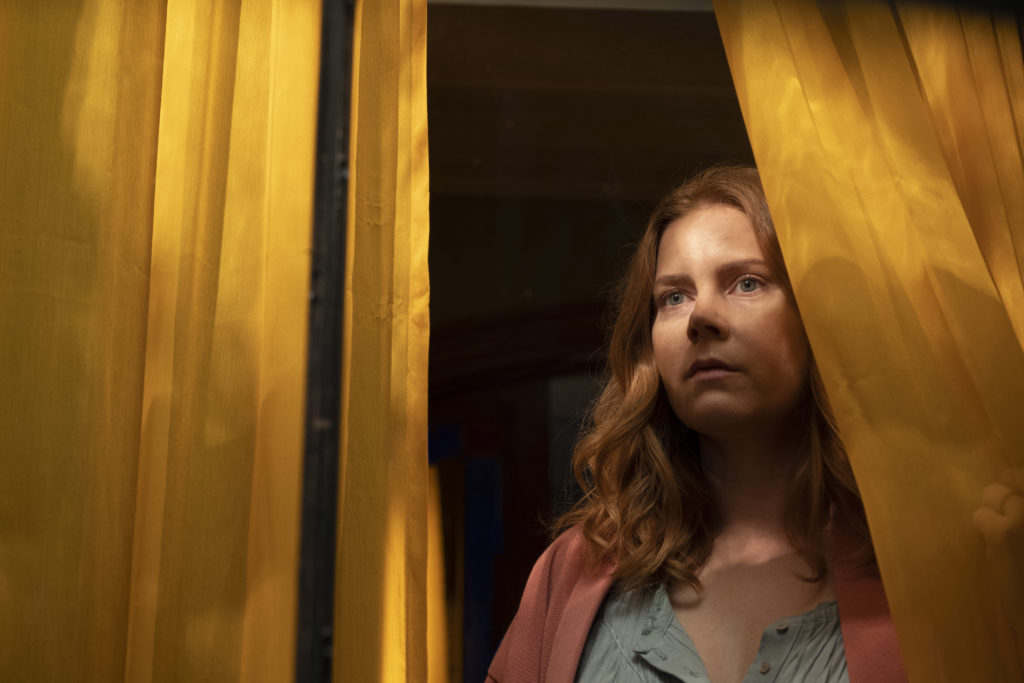The Woman in the Window

Amy Adams stars in THE WOMAN IN THE WINDOW. (Photo: Netflix)
Whether it looks back at Rear Window or copies Copycat, the psychological thriller The Woman in the Window isn’t worth more than a passing glance.
This visually striking yet dramatically muddled adaptation of the popular novel by pseudonymous author A.J. Finn never fulfills its lofty Hitchcockian ambitions while squandering a top-notch cast.
Anna (Amy Adams) is a child psychologist whose agoraphobia keeps her sequestered inside her spacious Manhattan apartment, where she rents out the basement to a singer (Wyatt Russell) and otherwise keeps watch over the neighbors while popping pills and sipping wine.
Although the source of her anxiety disorder isn’t immediately clear, she harbors bitterness and hostility which manifests itself in suspicion, hypersensitivity, defensiveness, and self-loathing. “People who snoop on their neighbors don’t kill themselves,” she barks sarcastically to her psychiatrist (Tracy Letts).
When a new family moves in across the street, Anna meets them one-by-one — the troubled teenage son (Fred Hechinger), the free-spirited mother (Julianne Moore), and the overbearing father (Gary Oldman). But when she witnesses a crime and calls the police, the evidence doesn’t stack up, suggesting that perhaps she’s fabricated the whole thing as another of her paranoid delusions.
Meanwhile, details are gradually revealed about Anna’s past, including glimpses of her relationship with her husband (Anthony Mackie) and a subsequent tragedy for which she’s experiencing residual guilt and grief. Her mind is consumed by hallucinations and worst-case scenarios that cause reality and fantasy to blur.
British director Joe Wright (Darkest Hour) effectively creates a claustrophobic atmosphere by keeping the action confined to Anna’s home, and thus the audience, too.
An understated performance by Adams attempts to capture Anna’s battle with internal demons through vacant gazes and neurotic stammers. As her voyeurism becomes an obsession, Anna is a fragile and rather pitiful figure — the kind of busybody who would be a tattling nightmare on the Nextdoor app.
However, melodramatic contrivances in Letts’ adapted screenplay tend to trivialize her affliction, decreasing the film’s value as a character study and turning mental illness into a narrative device. As the red herrings and genre tropes accumulate, the third-act twists strain credibility, especially during the big reveal and overwrought finale.
Along the way, the lurid central mystery struggles to generate enough suspense for the necessary emotional investment in the outcome, leaving The Woman in the Window with a blank stare.
Rated R, 100 minutes.